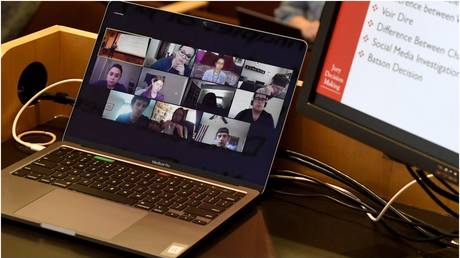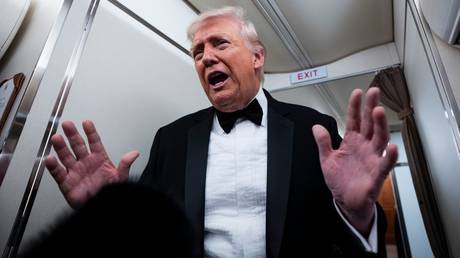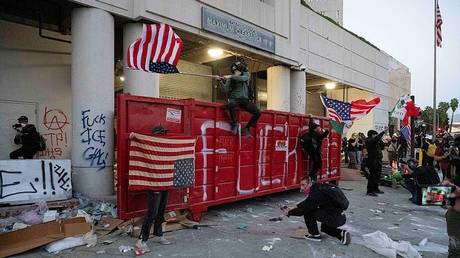
A return to remote learning is not the way to tackle soaring energy prices, Sylvie Retailleau says
Universities should not switch back to online classes in order to cope with the energy crisis, French Higher Education Minister Sylvie Retailleau has said.
Her statement comes as France and other European countries are increasingly looking for cost-saving measures amid the soaring energy prices and growing fears of gas shortages.
“We’re getting out of the Covid-19 [restrictions], we must keep the teaching in the classroom,” Retailleau said on Wednesday, as quoted by the newspaper Le Monde.
“The institutions that need help will be assisted so we don’t have to return to remote learning.”
The minister previously stated that universities are required to implement energy cost-saving measures, but they should not come “at the expense of the students [and staff].”
Retailleau’s remarks came after the University of Strasbourg (Unistra) in eastern France was criticized by teachers’ unions and student groups for a decision to make the winter break longer this year and bring back remote learning to deal with rising energy costs.
The university’s president, Michel Deneken, announced on Monday that Christmas holidays will be extended by one week to January 9. Additionally, all classes will be taught remotely for a week in February.
The heating at the university, which has nearly 57,000 students, will be turned on “as late as possible,” with the temperature maintained at 19C (66F), Deneken added.
“We are facing an energy crisis. As you know, the cost of energy is rising every day,” Deneken said. “We all need to work together and change our habits in the long term.”
Student group AES blasted Unistra’s plan to impose remote learning as “selfish and degrading,” arguing that the move violates the rights of students.
“The teachers will have to teach in thermal blankets, while the students will shiver from the cold,” Imane Oulhadj, the head of the Unef student union, said.
Major teachers’ unions FSU and CGT-FERC similarly argued that it is the responsibility of the government to impose energy-saving measures without limiting access to public services.




